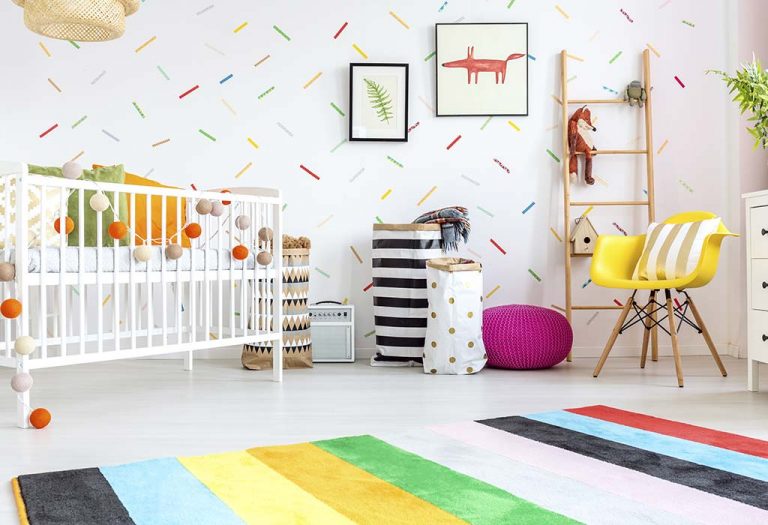House rules for children are something that parents must have.children Follow it daily. Failure to do so may lead to chaos in the house.

It's a common experience for parents: the home often falls into chaos no matter how hard they try to maintain order and discipline. So how do schools manage to keep most children organized in class despite everyone messing around at home?
It's the rules! While children don't develop reasoning skills until the age of 5 or 7, they instinctively follow rules when enforced correctly. So, to keep this circus at bay as a parent, you need to create and implement a simple list of rules for your home.
Do you need: Allergies in children and how to deal with them?
How should parents set house rules for children?
You'll soon discover that writing a list of rules and posting them on the fridge won't work, even on the first day. It's essential to establish a framework and think about how you'll manage it.
Some guidelines for setting family rules:
Discuss house rules for children with your partner.
Whether you're setting house rules for toddlers or older children, clearly discuss the purpose of the rules with your partner. What are you trying to achieve with the rules? Are they general rules for raising children or home arrangement When dealing with a child with behavioral issues? Set clear goals around these things because the last thing you need are pointless rules.
Hold a family meeting to discuss house rules for the children.
There's nothing like a serious family meeting to highlight the seriousness of the situation, especially when you have preschool or kindergarten-age children. Bring the family together and set the rules. Let the kids participate, and you may be surprised at how productive it can be.
Teamwork began to set house rules for the children.
Families need to function as a unit to make the machines work. Teamwork is how you respect each other's opinions, views, and actions in contributing to the home. A simple rule is to ask permission before borrowing an item.
Make house rules for children clear and specific.
Unclear goals and rules are waiting to be broken. Children need structure to grow, and while they claim to hate rules, they need them to keep things predictable and secure. A strong rule like never missing chores will keep everyone organized.
House rules for children should be written down.
The success of enforcing the rules depends on how often they are reminded of them. Write the rules on a piece of paper and post it in a prominent place, such as a door. Fridge Where it can be seen. For younger children, you can make an illustration and hang it up where necessary.
Compensation for different age groups
If you have children with a large age gap, you will need to adjust the rules to suit them and their developmental stage. One example of this is time SleepingYou cannot send your 3 year old and 10 year old son to the bed At the same time!

Set different rules inside and outside the home. You may allow your children to run around inside and play whatever they want, but when they visit grandma or a friend, they can't do the same. So, have clear rules for discipline when you're out and about.
Be a role model when setting house rules for children.
If you don't practice what you preach, you won't abide by the rules. Your children are constantly watching and learning from your behavior. They will relax at the first hint that you aren't strictly following the rules in the first place.
Use praise and consequences after setting house rules for children.
Praise is a great motivator that keeps children in class. On the other hand, appropriate consequences will also help enforce house rules. Remember, praise works best, so make it count.
Re-evaluate house rules for children when necessary.
Sometimes the rules you've set may contain something bigger and better. In such cases, you can reevaluate and change them to improve them.
Do you need: Children's sleep needs, the appropriate number of hours of sleep per day for your child
Important House Rules for Kids Clearly distinguishing between house rules for preschoolers, house rules can be grouped into a few broad categories as follows:
House rules for kids that focus on safety
These are the simplest rules that promote your child's physical and emotional safety. Some common examples are "Don't jump on furniture," "Don't run into a busy street," or "Don't answer the door when Mom is in the bathroom and no one else is home."
In addition to setting a rule, it's essential to inform children of what might happen if the rule is broken. Emotional safety rules include "speak kindly and use kind words." "Share your feelings and thoughts respectfully." Emotional safety rules also help children communicate well with others.
House Rules for Kids to Build Healthy Habits
It goes without saying that healthy habits lay the foundation for building discipline for more complex tasks as your child gets older. To help them do their best, you need to get your children used to a routine or structure for the day.

Some examples include “Brush your teeth before bedtime,” “Put all dirty clothes in the laundry basket,” and “Wash your hands and feet after outdoor playtime.”
Healthy habits also reduce power struggles with your children because when they know they have to put all the toys back in the basket after playtime or finish homework before dinner, they know the consequences of misbehavior.
House rules for kids that are based on morals
Rules that focus on morals play a huge role in shaping the type of person your child grows up to be. Therefore, create rules that instill moral values in your children. The simplest ones include "tell the truth" and "apologize when you make a mistake."
Morals also have a powerful impact on how well they adhere to the rules you set. Of course, your behavior is very important in setting an example for your children. Your children understand what you do more than what you preach, so your moral standards ultimately trickle down to your children.
Social Skills Rules
Rules that build social skills are essential for healthy child development. Children need rules to teach them behavior that makes them socially desirable and acceptable to their peer group. If they have siblings, a good rule of thumb might be "Share your toys with your sibling," "Take turns to play a game," or "Knock before entering a closed door."
These rules should help them become socially acceptable and play games with other children by age 4. For older children and teens who are attached to their gadgets, they need rules to establish etiquette, such as “the dinner table is a phone-free zone.” It’s also important that they sleep without their smartphones.
Real-world skills rules
Rules that Build Real-World Skills These rules should help your children once they leave home. They also serve as a summary of how they will comply with all the rules mentioned above.
Schoolwork is enough to keep some children engaged and motivated, while others need a little extra. One of the simplest ways to do this is to get them to do their part in the chores. Even if they're really young, you can start by having them do simple tasks like sorting their dirty laundry in the hamper. As they get older, you can reward them with money for larger tasks so they can learn how to handle money.
What to do if house rules are broken?
Parents usually decide the consequences for breaking rules; however, it's best if the consequences are something you and your child agree on. For example, if your child breaks a rule about healthy playtime and you ask them about the consequences, they might respond with, "I guess I won't be playing with the toy for a while." So, instead of getting them off because of a broken rule, you could go with, "It sounds like you've decided not to play with those toys for a while."
Children are more accepting of rules and consequences they've helped create. Rules keep things together and help raise your children to become responsible adults. When setting rules for infants, you have complete control over who enters them. However, when setting house rules for children age 8 and older, have them sit down with you and set clear boundaries.
the source : House Rules For Kids That Every Child Should Follow










